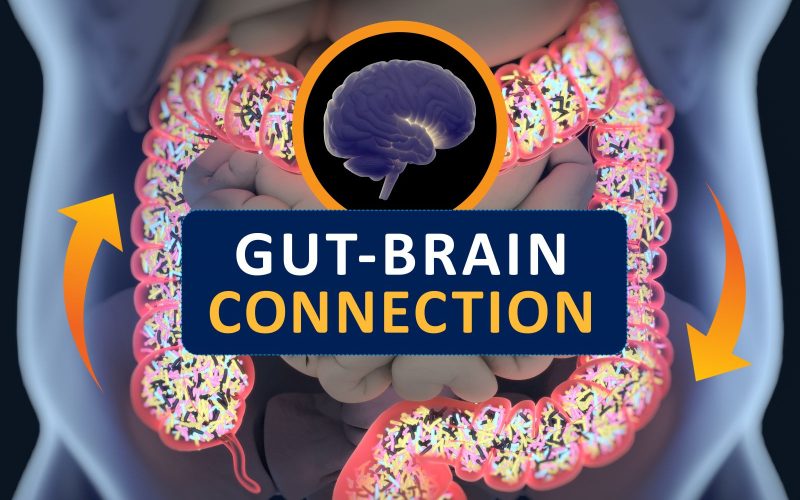Optimising Emotional Health Through Diet
Emotional Health – as a gastrointestinal Dietitian, Gillian Killiner @ 121 Dietitian, I am thrilled to share insights on how diet and gut health play pivotal roles in managing negative emotions and fostering overall well-being. In this guide, we take a look into the connection between what we eat and how we feel, shedding light on practical strategies to enhance emotional resilience and vitality.
Understanding the Gut-Brain Axis
Our gut and brain communicate bidirectionally through the gut-brain axis, influencing mood, cognition, and emotional responses. This intricate network involves the central nervous system, enteric nervous system, and gut microbiota.
Unfortunately, over 13 million people in the UK and 70 million in the States have ongoing gut dysbiosis and no matter what diet or emotional healing they embark on they are often left disappointed and unsure of what to do to break the cycle and symptoms.
It is widely acknowledged that all of the following areas are crucial for overall well-being, but a critical initial step often involves achieving a balance in the gastrointestinal tract first.
This foundational aspect is key as it sets the stage for optimal health and can significantly impact the effectiveness of the four subsequent steps outlined below.
The Impact of Diet on Emotional Well-being Nutrient-rich foods fuel brain function and regulate neurotransmitter production, affecting mood and emotional stability. Incorporating whole foods, rich in antioxidants, vitamins, and minerals, promotes mental clarity and emotional resilience.
The Role of Probiotics and Prebiotics
In a perfect world maintaining a healthy gut microbiome through probiotics and prebiotics fosters optimal digestion and nutrient absorption, while also modulating neurotransmitter production. Fermented foods like yogurt, kefir, and sauerkraut are rich sources of beneficial bacteria, promoting gut-brain health.
Strategies for Enhancing Emotional Resilience
Incorporating mindfulness practices, regular physical activity, and stress management techniques alongside a balanced diet enhances emotional resilience. Prioritize self-care and seek professional support when needed to navigate challenging emotions effectively.
Navigating Emotional Eating Patterns
Emotional eating often stems from attempts to cope with stress, boredom, or unresolved emotions. By cultivating awareness of triggers and practicing mindful eating, individuals can develop healthier relationships with food and address underlying emotional needs effectively.

Balancing Gut Bacteria
As an experienced specialist Dietitian with 26 years of dedicated practice in patient care, a recurring area that frequently requires attention is the functionality of the patient’s gastrointestinal tract.
By thoroughly assessing and providing targeted assistance in this crucial aspect of health, patients are better equipped to address various other health issues such as weight management, autoimmune conditions, energy levels, stress management, mental well-being, and achieving sports performance goals.
Our meticulously crafted Comprehensive Gut Health program is specifically designed to empower you to effectively alleviate your symptoms and enhance your overall well-being for the long term.
FAQs (Frequently Asked Questions):
How does stress impact gut health? Chronic stress can disrupt the balance of gut microbiota, leading to inflammation and digestive issues. Prioritizing stress management techniques fixing the GI dysbiosiswill allow you to adopt a balanced diet to mitigate these effects for the future.
Can specific foods worsen negative emotions? Certain foods high in refined sugars and unhealthy fats may exacerbate mood swings and fatigue. Opting for nutrient-dense foods supports stable blood sugar levels and sustained energy throughout the day.
Is there a link between gut health and anxiety? Emerging research suggests that gut dysbiosis may contribute to anxiety disorders. Incorporating probiotic-rich foods and dietary fibre promotes gut health, potentially alleviating symptoms of anxiety.
How can I incorporate probiotics into my diet? Include probiotic-rich foods like yogurt, kimchi, and kombucha in your daily meals. Alternatively, consider taking high-quality probiotic supplements under the guidance of a healthcare professional.
What role do omega-3 fatty acids play in emotional well-being? Omega-3 fatty acids, found in fatty fish, flaxseeds, and walnuts, support brain health and reduce inflammation, potentially improving mood and cognitive function.
How can I break free from emotional eating patterns? Practice mindful eating by tuning into hunger and satiety cues, rather than eating in response to emotions. Engage in stress-reducing activities and seek support from a registered dietitian or registered therapist if needed.
Conclusion
As we acknowledge the importance of Emotional Health, let us recognise the profound impact of diet and gut health on our emotional well-being. It is impossible in the world we live in to avoid viruses, bacterial illness, infections, and environmental pollutants….but we can work to assist the body to return to balance as much as possible.
By addressing dysbiosis, inflammation unhealthy habits by nurturing our bodies with nutrient-rich foods, prioritising gut health, and adopting mindful lifestyle practices, we can empower ourselves to navigate negative emotions with resilience and vitality and hopefully see less dark days. It does take effort and keeping on getting back up but it can be done.
Gx
If you want to book your programme TODAY we would love to help you.
You can book a 121 Dietitian Programme today by clicking on the link below
Links included in this description might be Amazon affiliate links. If you purchase a product or service with the links that I provide I may receive a small commission.

